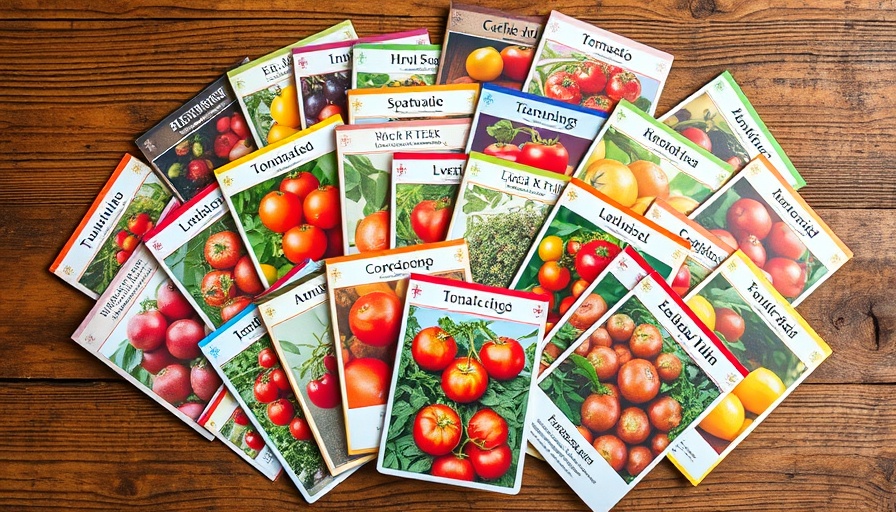
Northern Ontario's Green Initiative Gains Momentum
In a significant stride towards environmental sustainability, Northern Ontario seed producers are reaping the benefits of national funding aimed at boosting native seed production. As part of a broader initiative to restore Canada's ecosystems, organizations like Northern Wildflowers in Sudbury and Matawa First Nations Management have emerged as key players, receiving essential grants from WWF-Canada’s Seed Orchard Program.
Why Native Seed Production Matters
The crux of the funding initiative lies in the urgent need for locally sourced native plants to aid in habitat restoration and combat the pressing climate crisis. According to WWF-Canada, there is a stark deficiency in the availability of native plant species, which are critical for large-scale restoration efforts. By establishing seed orchards, producers can generate seeds specifically cultivated for habitat restoration, ensuring that local ecosystems can thrive once again.
Planting the Seeds for Change
With this funding, Northern Wildflowers is set to expand its on-farm seed production capabilities and introduce new native species into cultivation. The training of seed collection technicians also forms a part of their strategy, further enhancing their capability to provide the necessary seeds for ecological restoration. "There is no large-scale restoration without seed," emphasized Jenny Fortier, CEO and founder of Northern Wildflowers.
Aligning with Canada’s Environmental Goals
This local initiative aligns perfectly with Canada's ambitious “30 by 30” pledge to protect 30 percent of its lands and waters by the year 2030. Fortier highlights the importance of local seed production as a vital component in realizing these goals. The initiative is a perfect example of how ecological responsibility and business can marry together for a common goal.
Success Stories from Across the Region
Beyond just funding, the Seed Orchard Program has seen concrete success, with 35,500 native plants planted across 20 seed orchards. Additionally, producers have harvested 72 kilograms of seeds from a remarkable 142 different native plant species. This accomplishment showcases the power of collaboration between local producers and national organizations dedicated to environmental restoration.
The Road Ahead: Opportunities and Challenges
As Northern Ontario takes steps to secure its environmental future, it faces both opportunities and challenges. The awareness and support for native plant restoration is growing; however, producers must navigate the complexities of scaling up operations while maintaining ecological integrity. This delicate balance requires ongoing innovation and commitment from all stakeholders involved.
Your Role in Ecosystem Restoration
Community members, businesses, and local governments all have a role to play in supporting these initiatives. Whether through promoting native plant diversity in gardening, participating in local habitat restoration projects, or advocating for policy changes that support environmental sustainability, everyone can contribute to the greater good.
This funding initiative not only reflects a growing recognition of the importance of local ecosystems but serves as a reminder that we have the power to positively impact our environment. Join the conversation on how we can collectively work towards stronger, healthier ecosystems for future generations.
 Add Row
Add Row  Add
Add 




Write A Comment